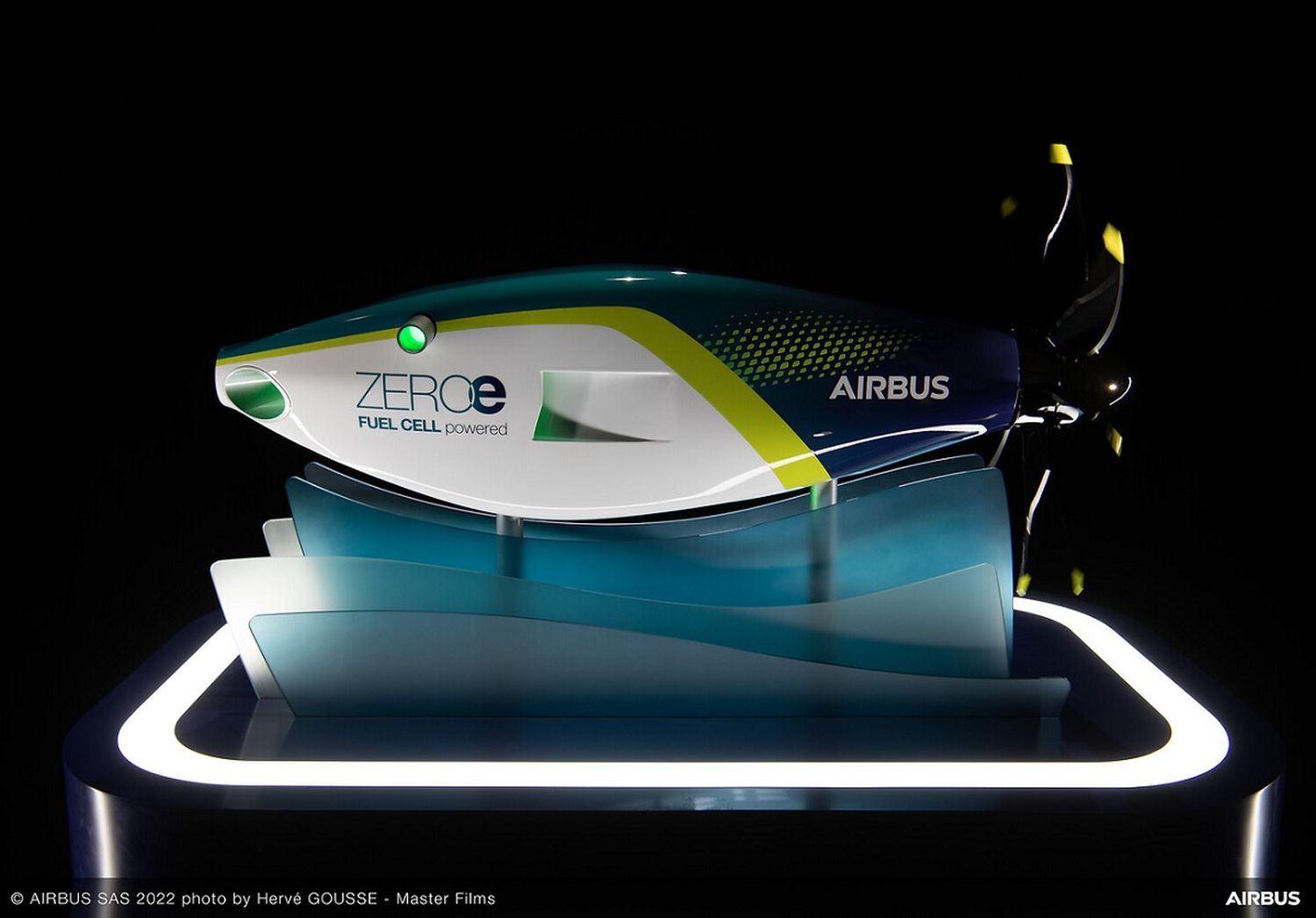As part of the Airbus Summit, the European aerospace manufacturer revealed that it is developing a hydrogen-powered fuel cell engine.
According to the company in a press release, the propulsion system will be considered as one of the possible solutions to equip its zero-emission aircraft from 2035.
Airbus could start ground tests in the middle of this decade. Subsequently, it would use one of three prototype ZEROe demonstrator aircraft for flight testing, a concept model that the company plans to introduce between 2027 and 2028 with the aim of exploring different hydrogen propulsion configurations and technologies to advance the development of future zero-emission aircraft. The test aircraft will carry liquid hydrogen tanks and associated distribution systems.
Green hydrogen, an ally for progress towards decarbonisation
There are two main alternatives for the use of hydrogen as an energy source for air vehicle propulsion. The first is combustion in a gas turbine, while the second is the use of fuel cells to convert hydrogen into electricity to power a propeller engine. Alternatively, a gas turbine can be coupled with fuel cells in a hybrid-electric system.
When stacked, hydrogen fuel cells are particularly powerful, which makes them scalable. In addition, a hydrogen fuel cell-powered engine produces no nitrogen oxide emissions or condensation trails.
«Fuel cells are a potential solution to help us achieve our zero-emission ambition and we are focused on developing and testing this technology to understand if it is feasible and viable for a 2035 entry-into-service of a zero-emission aircraft», said Glenn Llewellyn, VP pf Zero-Emission Aircraft at Airbus.
See also: Airbus partners to enable green hydrogen availability at airports


Comentarios
Para comentar, debés estar registrado
Por favor, iniciá sesión